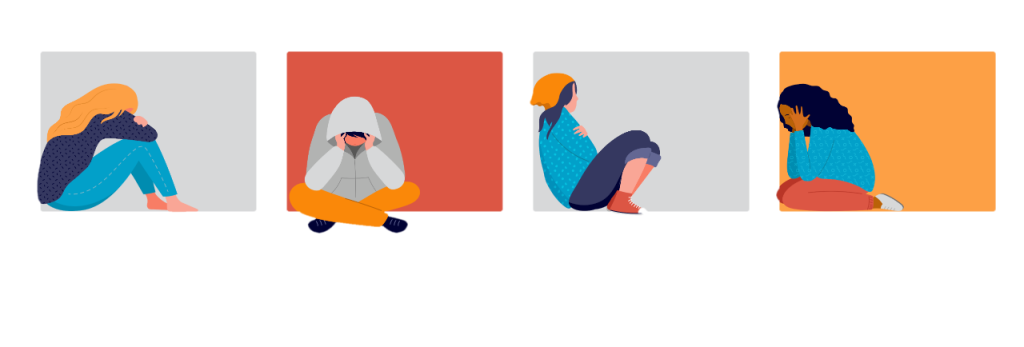Anxiety

Anxiety: What is it?
The NHS describes anxiety as “a feeling of unease that can be mild or severe”, sounds pretty straight forward right? However, anxiety can be so much more, not only does it affect how we feel emotionally but it can also change how we feel physically too. Ever feel your heart start to race before an important meeting? Do your hands go clammy, or your tummy do flips when you are making a presentation? Sometimes these feelings when fleeting can just be nerves, but what about when these feelings start to stick around longer than you would like. All of these can also be signs anxiety is coming in to play for you physically, these physical signs are your minds way of letting you know ‘hey I need some help here “.
Or perhaps for you, your mind is already doing all the talking and your body doesn’t need to give you these physical signals that anxiety is around; perhaps you already know by the constant self-questioning that you just can’t stop, or the worry of what others think, that you struggle to switch off.
What causes it?
Anxiety is different for everyone and can be felt physically and emotionally but the one thing that isn’t different is the root of where it comes from. A helpful way to look at anxiety is that it stems from thoughts and feelings that make us in some way feel threatened.
What makes the threat is unique to you, maybe its fear of failure, or a belief of not being good enough, whatever it is chances are the more you know about your own, worries, threats and fears the more you can do to soothe that anxiety when it shows up.
Does everybody get it?
Anxiety is an entirely normal emotion and feeling, and at some point everyone will encounter anxiety in their life. That’s not to say that all experiences of anxiety are the same, for some anxiety may just pop up at times of extreme stress or pressure, whereas for others anxiety may be a constant pressure which at some points in life may be a day to day battle that has to be fought.
The Mental Health Foundation www.mentalhealth.org.uk gives a good insight into the prevalence of anxiety in our society with the following data:
In 2013, there were 8.2 million cases of anxiety in the UK.1
In England women are almost twice as likely to be diagnosed with anxiety disorders as men.2
The one-week prevalence of generalised anxiety in England is 6.6%3
And more recent data from the Office of National Statistics shows:
Between 20 March and 30 March 2020, almost half (49.6%) of people in Great Britain reported “high” (rating 6 to 10) anxiety; this was sharply elevated compared with the end of 2019 (21%), and equates to over 25 million people (out of the population aged 16 years and over).
It’s pretty clear to see that anxiety is a part of so many people’s lives, so how can you help yourself when it knocks at your door?
What can I do about anxiety?
There are plenty of things that can help ease your anxiety and some of them may already be part of your daily routine.
Physical activity can help, it doesn’t have to be 10k run or some crazy spin session at the gym, just getting your body moving more in whatever way feels good for you is a simple way to start to soothe that anxious mind – do what feels good!
A healthy diet and a good nights sleep, of course play an important part in keeping our threat feelings about ourselves in balance too, but what if you already have these boxes ticked and anxiety is still there?
Taking the time to explore what your threat feelings are, to consider more what your mind is telling you during anxious times, could be the next step for you. Talking to a therapist, dedicating some time to; uncover, acknowledge, and reflect on what you feel threatens you and makes you anxious may help you to understand more just what makes that anxiety show up and just how to soothe it when you need to. The more you understand about yourself, the more choice you have in how you feel about yourself and that can be a powerful tool to have in anxious times.
Links to read more on anxiety
There is a wealth of great support out there for anyone experiencing anxiety, including further information about anxiety, access to support groups, phone helplines & text support. Helpful websites you may want to visit are:

